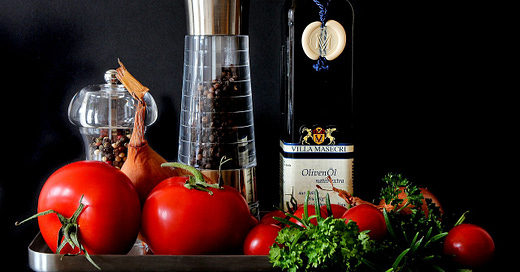Foods for mental health
The foods we choose impacts our microbiome, which affects our mental health.
According to the American Society for Nutrition, the American Psychiatric Association surveyed more than 2,000 people last year and found that 4 in 5 were willing to change the foods they eat if they knew they’d experience mental health benefits. With such a high number of people expressing this willingness, I recently wondered how many of my blog readers feel the same. Today I want to share highlights of multiple research studies that reveal how some foods have been shown to alleviate depression, improve brain health, and lower stress.
Mediterranean diet could improve depression
A piece published two years ago detailed a 3-month research trial on men with clinical depression. During the trial, participants consumed a plant-based Mediterranean diet low in refined sugar. It’s believed to be the first study demonstrating that the Mediterranean diet improves depressive symptoms in men. Per the study, “dietary improvements led to significant improvements in depressive symptoms with no observed side effects.”
Probiotics don’t make you more depressed or anxious
In 2020, BMJ Nutrition, Prevention & Health found that any use of prebiotics or probiotics in a diet offered potential benefits to individuals with clinical depression and/or anxiety. Researchers implemented seven studies that each included at least one strain of a prebiotic or probiotic. Impressively, “every study demonstrated a significant, quantitatively evident, decrease/improvement of symptoms and/or biochemically relevant measures of anxiety and/or depression for probiotic or combined prebiotic–probiotic use. This is observed regardless of the specific probiotic, method of administration or length of trial, across all test cohorts, irrespective of depression severity or additional comorbidities.”
Plant food for mood
A few months ago I published a post about eating for resiliency and quoted ZOE Science and Nutrition’s podcast guest Felice Jacka, professor of nutritional psychiatry. In that post I referenced what Jacka shared about how the size of the hippocampus in our brain is impacted by food and depression. During her podcast visit she also shared that “what we need to do for good mental health and good gut health are the same thing, and they're actually really simple…that is increase the amount of plant food in the diet.”
Food choice challenges
I’m still navigating my picky eater challenge and appreciated the comments and messages from folks about foods other people don’t like (which reminded me to add a few more foods to my list of foods that I’m not a fan of). Are you feeling more inclined to incorporate more Mediterranean foods, probiotics, and plants into your diet to potentially help improve your mental health? The research motivates me and I’m glad my picky eater challenge focuses on pickles since it hits all three of the food areas mentioned. As an update on that challenge: I’m not even halfway through the challenge and my perspective on pickles has already changed.




